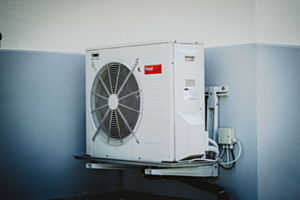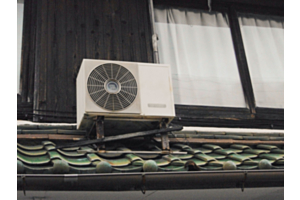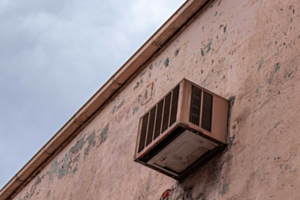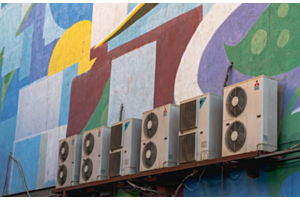Mark Gadala
-
November 13, 2023
You make many home improvement decisions with your wallet as your guide. It hasn’t steered you wrong so far, and you plan on using it as a litmus test to determine your next cooling solution.
You’re torn between central air conditioning and a ductless mini split system. Which is the least costly of the two?
A ductless mini split is far cheaper to run than central air.
Let’s explain why!
The difference comes down to how each cooling system operates.
A central air conditioner features an outdoor unit and a series of ducts that connect it. The ducts are not seamless, so the air that travels through them exits before reaching your living room. The expert consensus is that air loss is anywhere from 25 to 30 percent.
A ductless mini split has an outdoor compressor and at least one indoor air-handling unit attached
-
November 06, 2023
Here at PowerSave AC, we’re big proponents of ductless mini split systems. However, we recognize the importance of evaluating both sides of the equation, so we’ll discuss the downsides of a ductless mini split system.
Costly
Ductless mini splits aren’t the most inexpensive heating and cooling solution, especially compared with the initial cost of a central air conditioner or furnace.
While you might pay a lot out of the gate for a ductless mini split system, the amount of money you’ll recoup month after month and year after year more than makes up for that initial cost.
You can’t compare mini splits and traditional HVAC in longevity. The more years a furnace or central AC racks up, the less efficient it becomes. A mini split remains efficient for years, even a decade in some cases.
In 10 or 15 years, you could save hundreds of thousands of dollars.
Can’t Handle Extreme Temperatures
Mini
-
October 30, 2023
Placement is everything when selecting where your ductless mini split should go. Many homeowners get preoccupied with the internal unit but should give just as much consideration to the external unit.
Bearing that in mind, which side of the house should your ductless mini split system go? Let’s review.
Here’s the Best Side of the House for a Mini Split
Of the four sides you can select for your mini split system, the north side is the most beneficial.
Why is that?
Mini splits operate best when shaded from direct sunlight. The indoor units can get screwy temperature readings from too much sunlight, as the internal thermostat reads the sunlight as excess heat.
This can cause you to think something is wrong with how well your mini split works, when indeed, there isn’t.
The outdoor unit doesn’t function well in the sunlight, either. It can overheat from too much sun exposure,
-
October 23, 2023
Ductless mini splits are a reliable companion across all seasons. You can use their air conditioning function in the spring and summer, then switch to the heating mode as autumn gets colder and winter arrives.
With so much versatility when operating a mini split, what is the ideal temperature to set it on?
That depends on the season and whether you’re in your home.
For example, in the winter, you can set the temperature at around 68 degrees Fahrenheit if you’re not going to be home. You could even drop the temperature lower. However, be aware that when you come home, you might be shivering until you bump up the mini split’s operating temperature.
When you’re lounging at home, an operating temperature of around 70 degrees is comfortable in the winter. You shouldn’t be left shivering under a big blanket, and your house shouldn’t feel uncomfortably warm.
In the summer, you can set the mini split temperature to 80 degrees if you’re
-
October 16, 2023
Ductless mini splits, like anything else, operate under certain rules of thumb. This post will explore those rules in detail.
Watch Your Weather
Cold weather is when you rely on your heater the most. A ductless mini split system will continue to warm your home efficiently, but you must do your part. Brush snow off the exterior compressor.
Mini splits can defrost and melt snow, but if you can reduce the amount of snow on the unit in the first place, this will make it work less hard to defrost. It will also defrost faster, so it can concentrate its energies on keeping your home toasty.
Keep It Clean
You should have the phone number of your ductless mini split technician handy so you can have them at your home every six months to clean the unit. In the meantime, take care of basic maintenance tasks yourself.
Remove external debris around the compressor, such as sticks, stones, and branches. Change the
-
October 09, 2023
Air quality is such an important day-to-day consideration. Surrounding yourself with clean, healthy air can lower many health risks. They include asthma and other acute or chronic respiratory illnesses, lung cancer, heart disease, and stroke.
Improving air quality is about more than opening a window every now and then or plugging in a few air purifiers. The cooling and heating systems you select for your home can also impact air quality.
Ductless mini split systems are an advantageous choice for better air quality throughout the home. Let’s review how.
Mini splits include air filters built right into the system. These filters do more than catch internal dust within the system but can also capture contaminants such as mold spores, pet dander, and dirt.
The air that
-
October 02, 2023
Ductless mini split systems aren’t as permanent as ducted systems like furnaces and central air conditioners, but they’re still a long-term commitment. You must select a spot for the mini split you believe will improve its functionality yet not detract from the appearance of your home.
Keeping that in mind, can you put a mini split anywhere?
Yes, for the most part!
A ductless mini split system includes outdoor and indoor components connected by copper wiring. The compressor, which some refer to as the condenser, goes outside. It’s attached to the air-handling units, which are the indoor components.
The compressor and air-handling unit can be 50 feet from one another, but that’s it.
So, in that regard, you have a lot of freedom regarding where you’ll install the indoor units, which is what most homeowners are concerned with anyway (an outdoor compressor on a concrete slab doesn’t
-
September 26, 2023
Modern mini split AC systems sure are amazing. They have so many advanced features that make them a wise choice for more homes and commercial buildings than ever. Here is an overview.
Heating
A mini split AC system is handy for more than cooling! Many units can also heat your home. You don’t need to set up a separate indoor system or anything of the sort. Simply switch between heating and cooling modes as you desire to experience the difference of a comfortable home.
What if your mini split system uses several indoor units? All units must be on the same setting to run. In other words, you must have all the units set to cool or heat.
You can’t cool using some indoor units and heat using others, although who knows what the future of modern mini split technology looks like? You can never say never!
Defrosting
Frigid winter temperatures can put your mini split system at risk of freezing.
-
September 19, 2023
One of the greatest aspects of homeownership is the freedom to expand on your home if your family grows. However, adding to your home means figuring out all sorts of basic considerations.
For example, how will you wire electricity to the new wing? What kinds of heating and cooling options do you have?
Ducted systems like central air conditioning and furnaces become more complex once you expand your home. You might need to replace your current HVAC units with heating and cooling that can handle the increased load.
You’ll also certainly have to increase the amount of ductwork across your home, adding unappealing ducts to connect the new part of the home to the existing system.
It’s time-consuming, expensive, unsightly, and inefficient. We don’t only mean inefficient from a project expediency standpoint but from an environmental perspective too.
Ductless mini splits are a far more prudent option as you okay the plans for more rooms to be connected to
-
September 12, 2023
Owning a small home affords you the freedom to eschew many of the trappings of everyday life. You’ve learned to live minimally, as you can only fit so much in your home. You’ve detached from material items and found value in other aspects of life.
You deserve adequate heating and cooling for your home, no matter its size, the same as anyone else does. However, you’ve struggled to find options that work for your small property, as furnaces are comically large, and central air conditioners just don’t make sense.
A ductless mini split is the solution you need to cool and warm your small space. Here’s why.
Outdoor Compressors Aren’t Space Hogs
Ductless mini split systems require at least two components: the compressor or condenser and the air-handling unit. The compressor goes outside in your backyard or side yard, and the air-handling units






